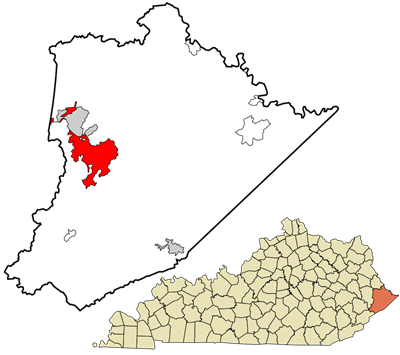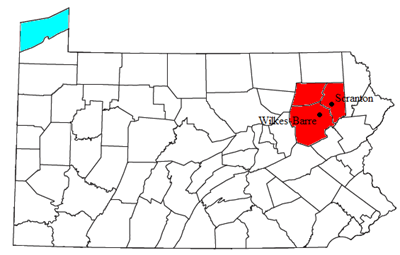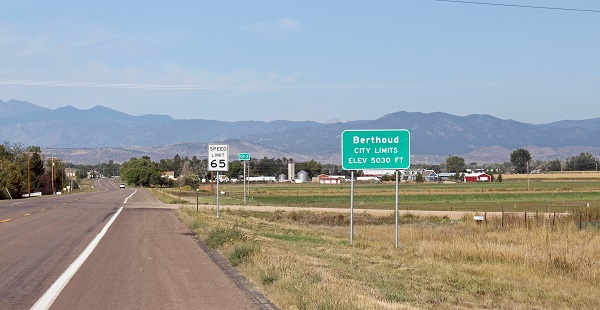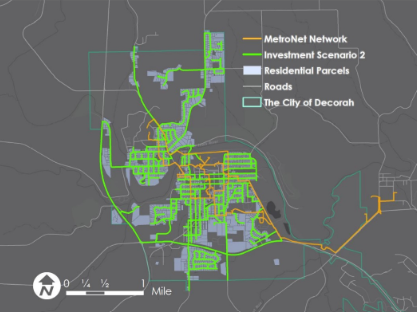
Fast, affordable Internet access for all.

Blue River, Colorado (est. pop. 882) is the latest Colorado municipality to explore building its own broadband network with an eye on affordable access. The town is part of a trend that’s only accelerated since the state eliminated industry-backed state level protections restricting community-owned broadband networks.
Just south of Breckenridge in the central part of the state, Blue River is nestled in one of the more rural parts of Summit County. Comcast (Xfinity) enjoys a broadband monopoly, resulting in spotty access, slow speeds, and high prices. Locals also routinely complain that cell phone service remains spotty in much of the mountainous area.
In response, town leaders recently hired the consulting firm, NEO Connect, to explore the possibility of building a town-wide fiber network. According to a feasibility study presented to the Blue River Board of Trustees by Mayor Toby Babich, the construction of a fiber network serving every town resident will cost somewhere in the neighborhood of $13 million.

While that “may seem out of reach,” Babich recently told the board, “we believe with the right funding and partnership we can move forward with this project.”
The estimates for network construction range somewhere between $7 million to $24 million, depending on how much underground trenching work is required.
Pikeville, Kentucky (pop. 7,300) sits about 150 miles southeast of Lexington, in the extreme eastern part of the state. Today, after almost a decade of fighting with Internet Service Provider (ISP) Optimum about service so consistently poor that the city finally sued the provider, it’s working on an alternative: a partnership that will see the local government build new citywide fiber infrastructure and lease it to an operating partner.
A Tale As Old As Time
Publicly available data shows that, historically, about two-thirds of the city of Pikeville can take Internet service from Inter Mountain Cable - a regional provider with about 25,000 subscribers across Kentucky, West Virginia, and Virginia. Likewise, Optimum (formerly Suddenlink) offers cable service to about the same number of households. AT&T’s DSL service covers a little more than a quarter of town. Those living in the northern half of the city generally have better service options than those living in the southern half.

The path the city of Pikeville has taken began almost 15 years ago. In 2009, the local government signed a new, 10-year franchise agreement with Suddenlink. But when Altice (originally a French telecommunications company) bought Suddenlink back in 2015 to build its portfolio here in the United States, things quickly took a turn for the worse.
The Otter Creek Communications Union District (CUD) has been awarded a $9.9 million grant by the Vermont Community Broadband Board (VCBB). It’s the latest effort by the state to use CUDs to deliver affordable fiber broadband access to the long-neglected rural corners of Vermont.
According to the CUD’s announcement, the funding will help deploy affordable fiber access to roughly 4,100 homes and businesses by 2025. The fiber deployment will be done in partnership with Consolidated Communications, which says it has deployed fiber to 110,000 Vermont homes and businesses since 2021.
The deployment should ultimately bring broadband access to 85 percent of homes and businesses in the Otter Creek CUD area, which covers 17 towns and one city in and near Rutland, Vermont in the southwestern part of the state as 2,300 of the locations targeted by this latest round of funding currently have no access to any broadband service whatsoever.
“We’re excited to work collaboratively with Consolidated to bring future-proof Internet to the 18 communities within our CUD,” Otter Creek CUD Chair Laura Black said in a statement. “This funding will put us well on our way to meeting the goal of universal service in the Rutland region, bringing all the opportunities that come with reliable, high-speed internet. The Otter Creek CUD board is proud to be on the way to bringing the broadband infrastructure this community needs to participate in the global economy.”
Memphis Mayor Jim Strickland has introduced an ambitious new plan to incentivize private telecom providers to deliver affordable fiber to 85 percent of the Tennessee city of 633,000. The project, part of the city’s Memphis 3.0 master plan, will spend more than $700 million to expand broadband in a city where less than a quarter of residents–most of them wealthy–have access to next-generation fiber.
On September 23, city leaders introduced a new city ordinance amendment establishing new, streamlined permitting and fee requirements. Their goal: to incentivize companies willing to expand fiber optic broadband to at least 60 percent of Memphis’ residential and business premises and 60 percent of all existing low-income premises.
Not long after, city leaders unveiled more details about their "Smart Memphis Fiber" effort. After issuing an RFP last year, Memphis officials say they’ve struck a partnership with Paris-based Meridiam and Blue Suede Network to build a $700 million fiber optic network with an eye on eventually reaching 85 percent of the total Memphis population.

“City Government will incentivize any interested company by reducing our costs through reductions in permitting fees and right-of-way fees,” Strickland said in a recent presentation before the city council. “Additionally, we will streamline our process to allow a company to get to work faster. We are also putting our own skin in the game.”
The city of Scranton, Pennsylvania has issued a request for qualifications (RFQ) for vendors that may be tasked with constructing an affordable citywide fiber network. City leaders say the RFQ is the opening chapter in a bid to bring affordable broadband access to city residents long neglected by dominant regional monopolies.
According to the full RFQ, officials are looking for partner companies capable of building a citywide network capable of providing 1 Gbps (gigabit per second) download and upload speeds to all premises in the City of Scranton, as well as expanded fiber access for city municipal services and key anchor institutions.
“The City does not require municipal ownership of the fiber or a City operational role,” the RFQ states. “However, the City does request connectivity to certain City sites, a 40-year indefeasible right of use (IRU) for 12 strands of fiber for municipal noncommercial purposes throughout the network, and an access and maintenance agreement governing these strands.”

As with so many U.S. markets, broadband competition in Scranton is hard to come by. The market is largely dominated by either Comcast Xfinity or Verizon, the latter of which has been heavily criticized by unions and consumer groups for failing to uniformly upgrade its aging DSL network to fiber, and failing to repair aging lines on a timely basis.
This lack of meaningful competition results in slow broadband speeds, spotty coverage, substandard customer service, and significantly higher prices. Even then, the city hasn’t been without signs of life in the marketplace.

A little more than three years ago, the city of West Des Moines, Iowa announced that it would build a citywide open access conduit system to lower the cost of new broadband deployment to facilitate better connections at lower costs for residents. GFiber (formerly Google Fiber), Mediacom, Lumen (formerly CenturyLink), and local ISP Mi-Fiber have since signed on as providers.
This week on the podcast, Deputy City Manager Jamie Letzring and city Innovations Consultant Dave Lyons join Christopher to talk about overcoming design and legal challenges of building an infrastructure system that remains relatively unique, and the commitment the city has made to reach economically disadvantaged households to make sure everyone has a quality and affordable connection. Finally, they share a little about how the city has been taking steps to use the new conduit system to supplement its already-robust fiber network for government facilities, smart-city initiatives, and more.
This show is 36 minutes long and can be played on this page or via Apple Podcasts or the tool of your choice using this feed.
Transcript below.
We want your feedback and suggestions for the show-please e-mail us or leave a comment below.
Listen to other episodes here or view all episodes in our index. See other podcasts from the Institute for Local Self-Reliance here.
Thanks to Arne Huseby for the music. The song is Warm Duck Shuffle and is licensed under a Creative Commons Attribution (3.0) license.
Lancaster, Pennsylvania has revitalized the city’s long percolating plan for a municipal broadband network, this time via a public-private partnership (PPP) with Shenandoah Telecommunications Company (Shentel). The city’s quest for more affordable, reliable broadband is a quest that’s taken the better part of a decade to finally come to fruition.
Lancaster city officials recently announced that they’d selected Shentel with an eye on ensuring uniform broadband availability to the city of 57,000.
“In 2022, the City issued an RFP for a partner to achieve stated goals, which received five responses, and led to the selection of Shentel,” the city said. “The contract will result in Shentel installing fiber at its sole cost to provide service to 100% of the city’s residents. Shentel plans to commence design and construction immediately upon execution of the final agreement.”
According to Lancaster officials, the city hired CTC Technology & Energy Engineering & Business Consulting to evaluate the city’s needs. The determination to proceed with a PPP with Shental was driven, in part, by the historic broadband grant opportunities being created thanks to the 2021 Infrastructure Investment and Jobs Act (IIJA), and the American Rescue Plan Act, the latter of which provided $39.5 million to the city.
Berthoud, Colorado, population 11,717, is the latest Colorado community to explore community broadband alternatives to expand public access to affordable fiber. Currently in the process of crafting a request for quote (RFQ), the city tells ILSR it hopes to make its final determination by November and have a preliminary plan in place by the end of the year.
Originally, Berthoud had planned on forming a coalition with three neighboring Colorado towns (Johnstown, Mead and Milliken) in a bid to expand access. That plan involved striking a memorandum of understanding (MOU) with Lincoln, Nebraska based Allo Communications, to deliver fiber to every address within three years.
But city leaders say the original plan wasn’t meant to be.
“The four communities did not strike a deal with Allo,” Berthoud Business Development Manager Walt Elish told ILSR. “We could not come to terms. Since then, we have looked at other options, including a town-owned network.”

As with many towns and counties, the high cost of a municipally owned broadband network has the city examining different options, including a potential public private partnership (PPP) with existing providers. PPPs are increasingly common but can have their downsides, including less municipal control over pricing or the potential trajectory of the finished network.
Decorah, Iowa is moving forward on a long-percolating plan to expand the city’s core fiber ring to provide affordable broadband access to long-neglected residents and businesses.
While the project has been discussed for years, local officials tell ISLR the project gained renewed momentum during peak COVID, and is creeping closer to launch.
Contracts are still being finalized as the city hopes to spend somewhere around $12 to $15 million to deliver fiber to all 3,000 potential subscriber locations. The full project would take about three years to deliver fiber to all 7,740 city residents, with the first subscribers potentially coming online this fall.

“Decorah has been in pursuit of fiber to the premises for the last 8 to 9 plus years and we finally have broken through some of our challenges on how to get to the finish line,” Chopper Albert, Decorah IT Director told ISLR.
According to Albert, Decorah’s recent progress is thanks in part to new City Manager Travis Goedken, who has long advocated for expanding the city’s existing fiber network to drive affordable fiber access citywide.
New City Management Team Pushes Forward
Since 2013 the city has owned an 11-mile core fiber network, dubbed the Decorah MetroNet. MetroNet was born out of frustration after a major flood in 2008 across much of Iowa resulted in prolonged communications network outages.
MetroNet (not to be confused with the Indiana-based ISP that goes by the same name) currently provides access to Luther College and 18 additional government buildings and anchor institutions.
The city of Dublin, Ohio has struck a public private partnership with altafiber (formerly known as Cincinnati Bell) to build a new citywide fiber network city leaders hope will finally deliver the kind of affordable, next-generation broadband access Dublin’s 50,000 residents have long been clamoring for.
In 2022 the city issued a request for proposal (RFP) looking for a partner on a citywide network build. At a June 26 meeting, the Dublin city council voted unanimously to select altafiber from a roster of seven potential applicants.
According to the arrangement, construction of the city network is expected to begin in Spring of 2024, with every premise in Dublin passed by a 10 gigabit per second (Gbps) capable network within three years. A select number of undetermined customers are expected to be brought online sometime in the latter part of next year, officials tell ILSR.
A city press release notes that altafiber will invest $35 million in the fiber network, as well as potentially providing the infrastructure necessary to help the city support either public Wi-Fi initiatives or a City Innovation Center. The city says it will pay about $6 million to bury the necessary fiber infrastructure citywide.